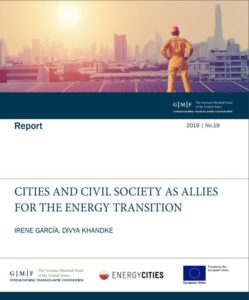Charlotte is the most populous city in the U.S. state of North Carolina, and is the county seat of Mecklenburg County.
In 2015, Charlotte committed to the Compact of Mayors (now the Global Covenant of Mayors), pledging to share a long-term vision of promoting and supporting voluntary action to combat climate change and move to a low emission, resilient society. Charlotte is in the process of creating an aspirational commitment to climate action. At present, the city is working with Envision Charlotte, a local nongovernmental organization, to develop a greenhouse gas (GHG) emissions baseline inventory and targets that keep Charlotte in accordance with the Paris Agreement. This is part of a three stage process: form an energy baseline, develop scenarios to reduce emissions, and set a climate strategy.
The data will inform the development of a Sustainable Energy Action Plan (SEAP), which will provide the city with a roadmap to reach the GHG reduction goal of <2 tons CO2e. In June 2018, the City Council adopted the resolution for a “Sustainable and Resilient Charlotte by 2050” which commits the city to striving for a low carbon future by 2050 and the continuation of global climate targets. Additionally, the resolution commits the city to procuring zero carbon energy for municipal facilities by 2020, a short-term and aggressive target that underlines the city’s commitment.
Charlotte has formed an Environment FY2018 and FY2019 Strategic Focus Area Plan. Given fast- tracked growth, Charlotte’s environment team seeks to balance economic prosperity with protection of natural resources. The city continues to explore efficiencies that will streamline its efforts with those of the community groups who are working to manage solid waste, energy, water, and air.
Governmental competencies
Charlotte’s governmental competences related to the energy transition include transportation that encompasses driving, bicycling, and walking experiences in the city; planning, design, and development; storm water services; water supply, and solid waste services.
Charlotte’s North End Smart District (NESD) is a community of eight neighborhoods north of the Charlotte Uptown city center working toward creating a center for economic growth driven by residents, data, and technology. Multiple projects in the NESD bring together stakeholders from the community, public, private, and non-profit sector to work collaboratively for improved mobility, safety, energy, public services, education, and environmental health.

